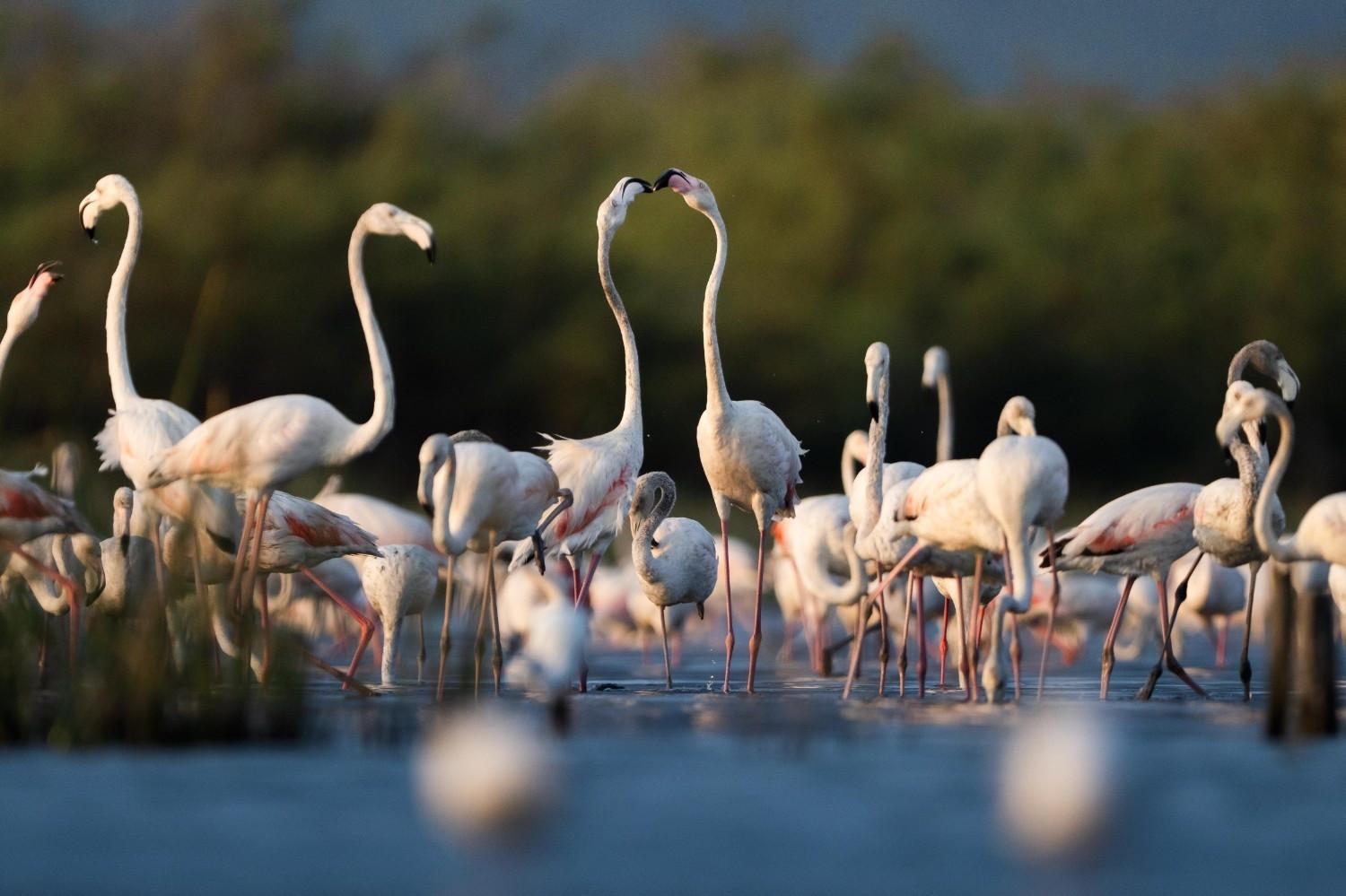
A spectacular procession of pink-feathered flamingos migrating from the Mediterranean region has arrived at the western province of Bursa’s Kocaçay Delta, marking the start of their wintering season in one of the region’s most vital wetlands.
Flamingos along the Eurasian-Mediterranean flyway shift between shallow, saline wetlands according to seasonal changes in water and food availability.
In Türkiye, the most commonly observed species is the greater flamingo (Phoenicopterus roseus), easily recognized by its tall frame and pale pink plumage.
They feed by inverting their heads and filtering water through lamellae in their bills, capturing microscopic algae, plankton and small invertebrates.
Their long legs and webbed feet allow them to move efficiently through shallow waters, conserving energy.
The Kocaçay Delta offers a mosaic of protected shallow wetlands, providing them a safe feeding and resting ground during winter.
Historically, Tuz Lake has served as a central site for large chick-rearing colonies, while the Gediz Delta provides crucial stopover points along the migration route, thanks to its brackish zones and abundant invertebrate life.
Greater flamingos build conical mud nests raised above the ground to protect eggs from waves and excessive heat.
Typically, a single large white egg is laid, allowing parents to focus on intensive care.
Young flamingos often gather in communal “kindergartens,” a strategy that enhances protection against predators.
However, the species still faces increasing challenges.
Irregular rainfall and rising evaporation can shrink shallow wetlands, restricting food access.
Extreme drought may cause breeding sites to dry prematurely, leading to mass chick mortality.
Local cooperation with farmers and water managers ensures flamingos find safe feeding grounds during critical periods.
Controlled eco-tourism initiatives, such as observation towers and guided tours, generate income while promoting conservation awareness.
Experts stress that the long-term resilience of flamingo populations depends on preserving every link in the migration chain. Without protection across all wetlands, the species’ survival cannot be guaranteed.